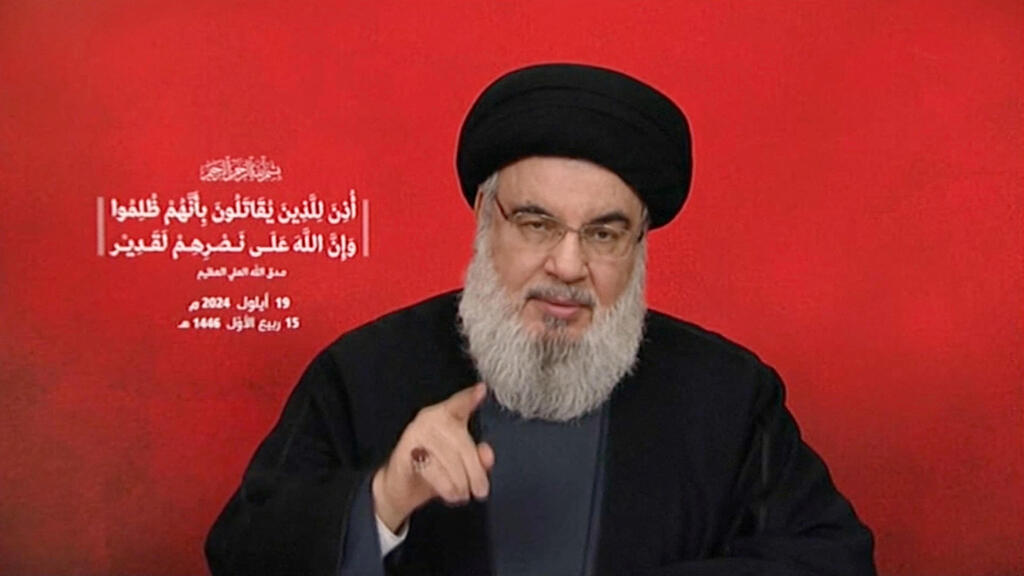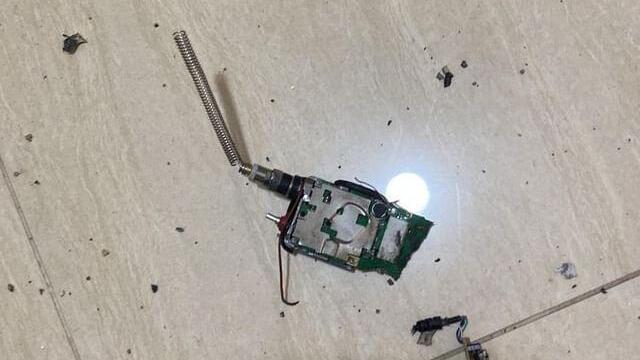Getting your Trinity Audio player ready...
Listening to the speech made by Hezbollah Secretary-General Hassan Nasrallah revealed he mainly seems afraid of an Israeli ground operation into southern Lebanon aimed at pushing Hezbollah away from the border and creating a demilitarized zone to remove the threat of rocket and anti-tank missile fire.
This was especially evident when Nasrallah directly addressed Prime Minister Benjamin Netanyahu, saying, "Whatever you do won’t bring the residents of your north back to their homes."
Nasrallah made a direct reference to a plan attributed to IDF Northern Command Chief Major General Ori Gordin to establish a buffer zone in southern Lebanon, threatening in detail how it would turn into a trap for troops. It's clear this is what he fears most.
Nasrallah seemed stunned by the coordinated detonations of the terror group's communication device that were attributed to Israel. He spoke of a "deep reckoning and proper punishment" and a suitable response, but based on his speech it’s fairly clear that neither he nor Iran have decided what to do as of yet. In fact, he avoided explicit threats, using the weakest words possible.
Hezbollah leader Hasan Nasrallah
This mirrors the situation in Israel, where discussions are currently being held about how to act in Lebanon in a way that will allow residents to return to the north. There are several options and a modular plan on the table, with a decision having to be made in the next day or two.
Neither side is talking about an all-out war. The Hezbollah leader is very careful not to challenge Israel and refers to the explosions as "something that could be considered a declaration of war" but doesn’t explicitly call them as such. Nasrallah is hesitating, the Iranians are hesitating and Israel is too. Here, the hesitation primarily concerns a ground maneuver into Lebanon.
Before that, Nasrallah attempted to mitigate the damage, particularly the psychological one caused by the pager and communication device detonations against his people and the Lebanese public.
He also tried to leverage this to undermine Israel's legitimacy on the international stage, claiming that explosions occurred inside hospitals calling them "genocide, massacre and war crimes." In this way, he hopes to deter a ground assault.
Still, Nasrallah has rejected calls for de-escalation from intermediaries, insisting that he would not stop his attacks on Israel until the fighting in Gaza stops.







